Arguments Against Creating Shared Value: Globex Shipping Case Analysis
VerifiedAdded on 2022/10/19
|5
|1115
|109
Discussion Board Post
AI Summary
This discussion post critically examines the concept of Creating Shared Value (CSV) through the lens of the Globex Shipping case study. The paper argues against the efficacy of CSV, highlighting its limitations and potential pitfalls. It posits that CSV, as proposed by Porter and Kramer, often fails to address the inherent tensions between social and economic goals. The analysis of Globex Shipping illustrates how CSV can prioritize corporate profit over broader societal and environmental concerns, particularly in cases involving multiple stakeholders and ethical considerations. The assignment emphasizes that CSV can lead to 'cherry-picking' of easy win-win projects while neglecting deeply rooted social and environmental issues. The post concludes that a more comprehensive approach, involving industry-wide solutions and multi-stakeholder initiatives, is necessary to address pressing societal problems effectively, especially in the shipping industry where rogue actors can cause significant environmental damage. The assignment makes a case for rational changes in the shipping industry to prevent disasters from oil spills.
1 out of 5
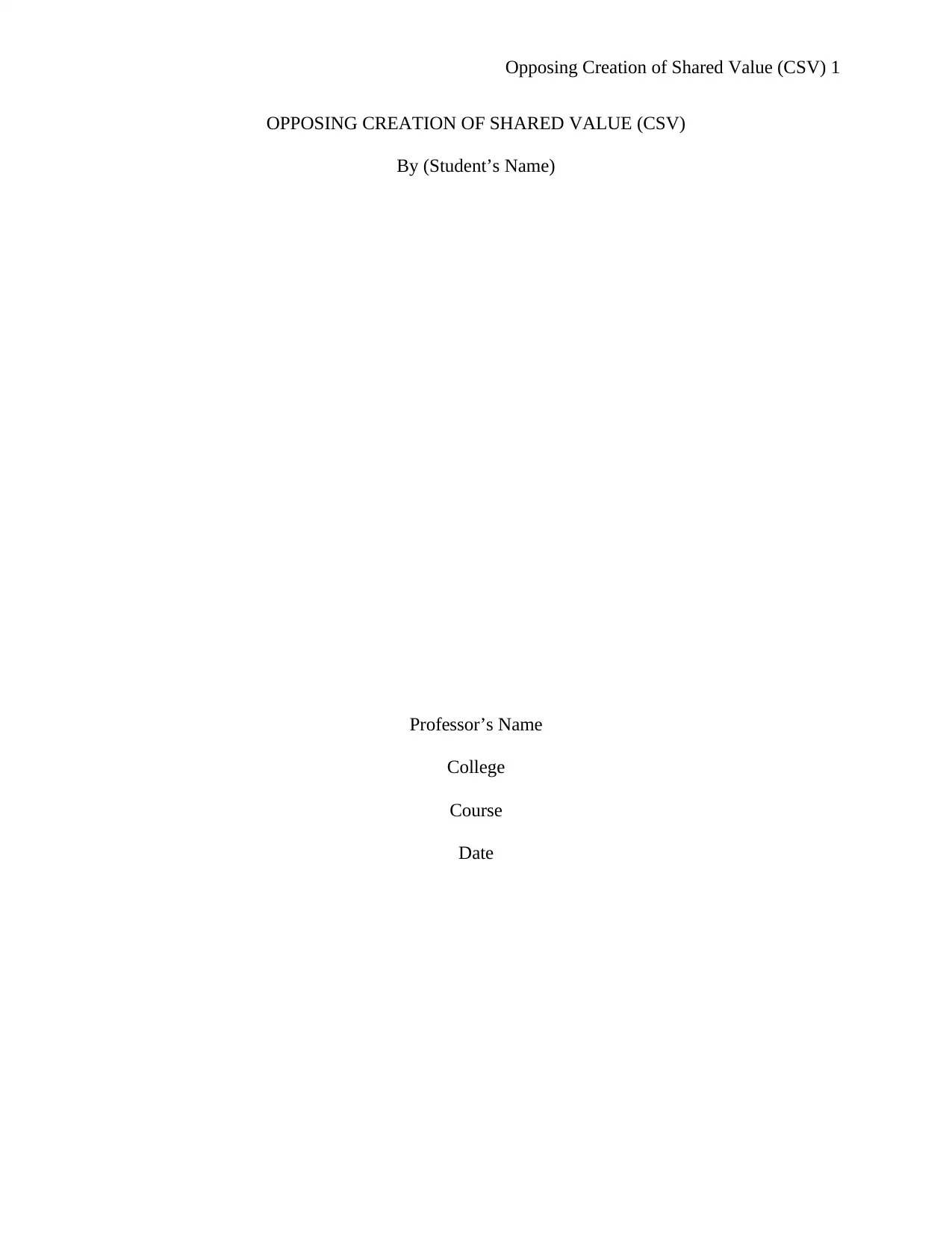
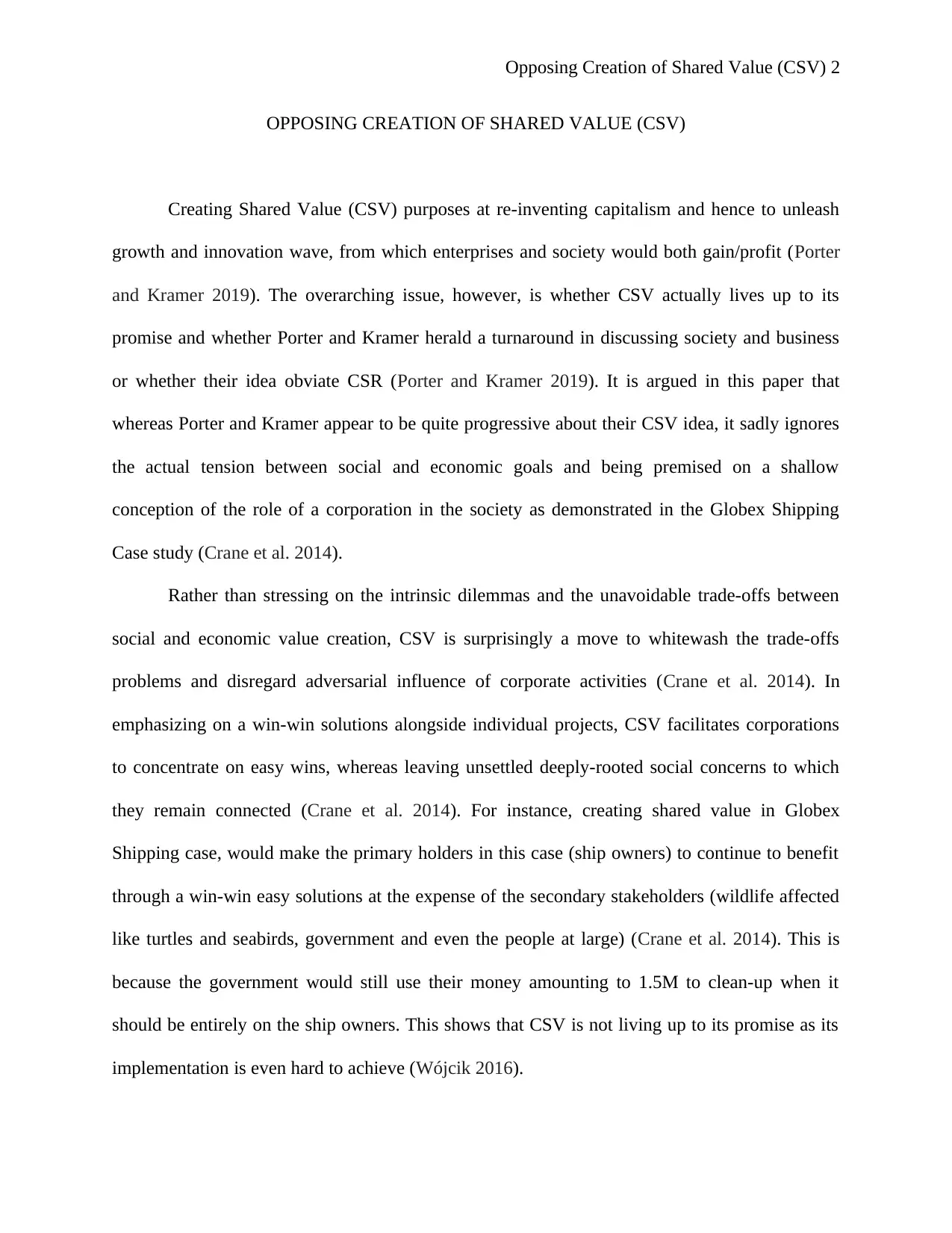
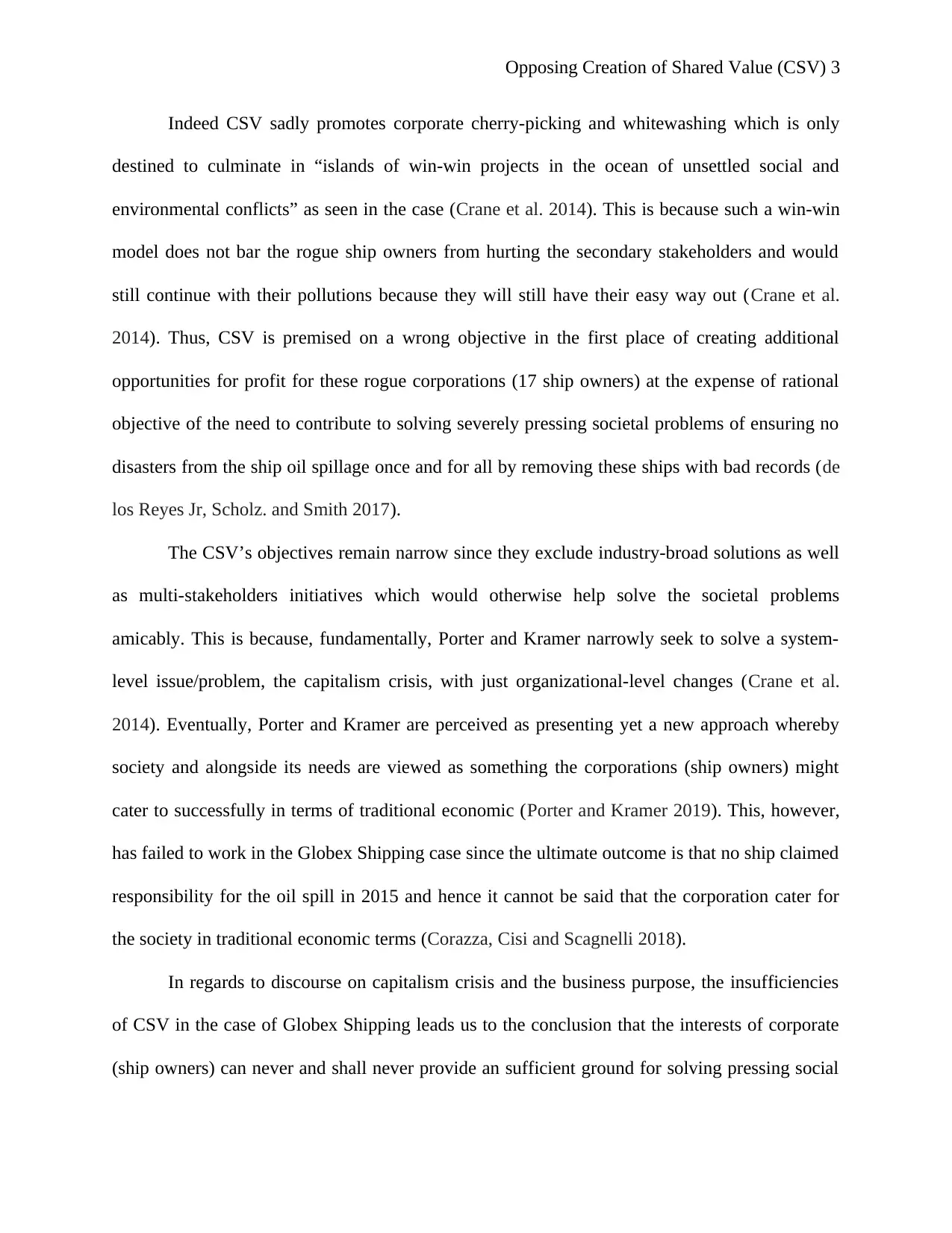

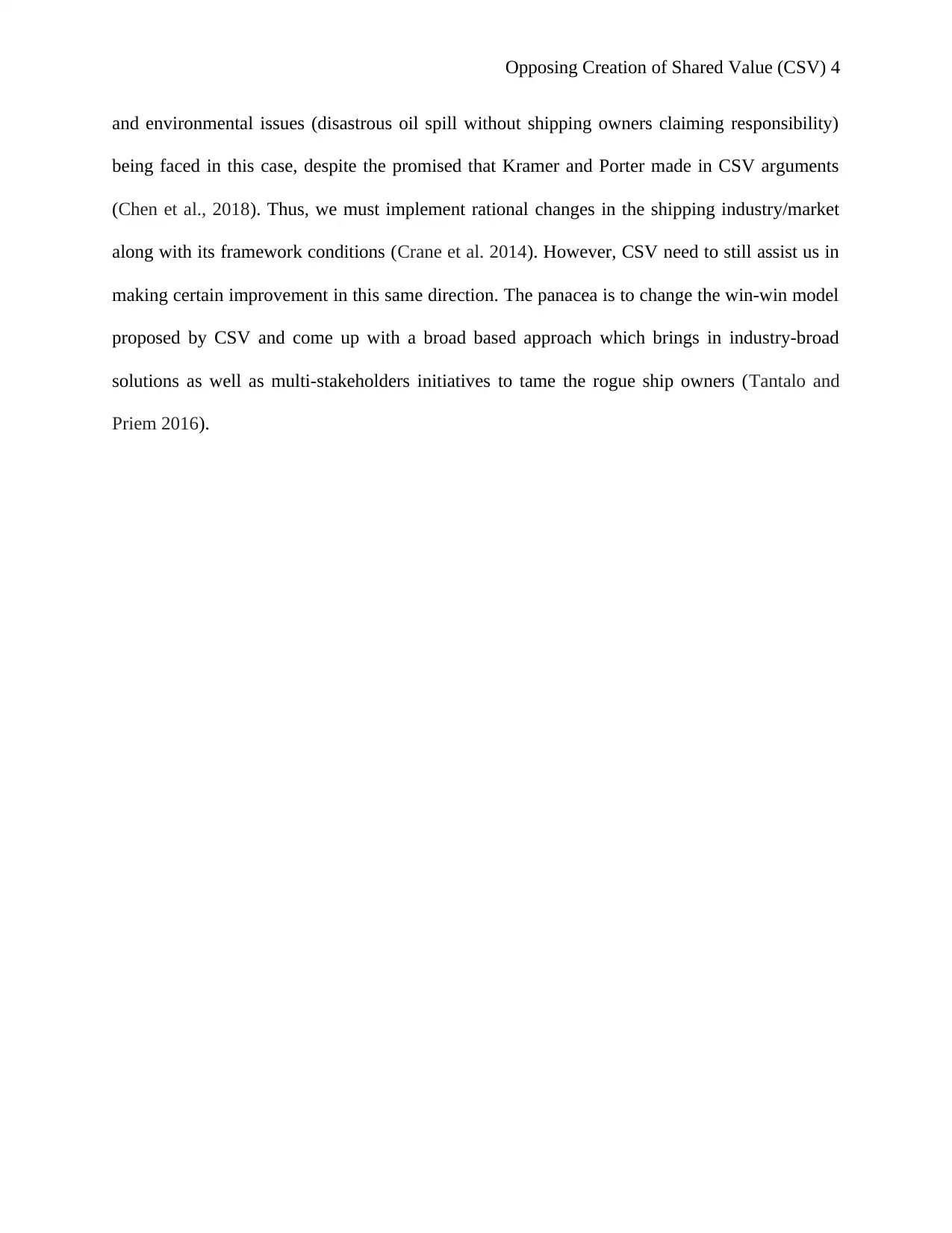
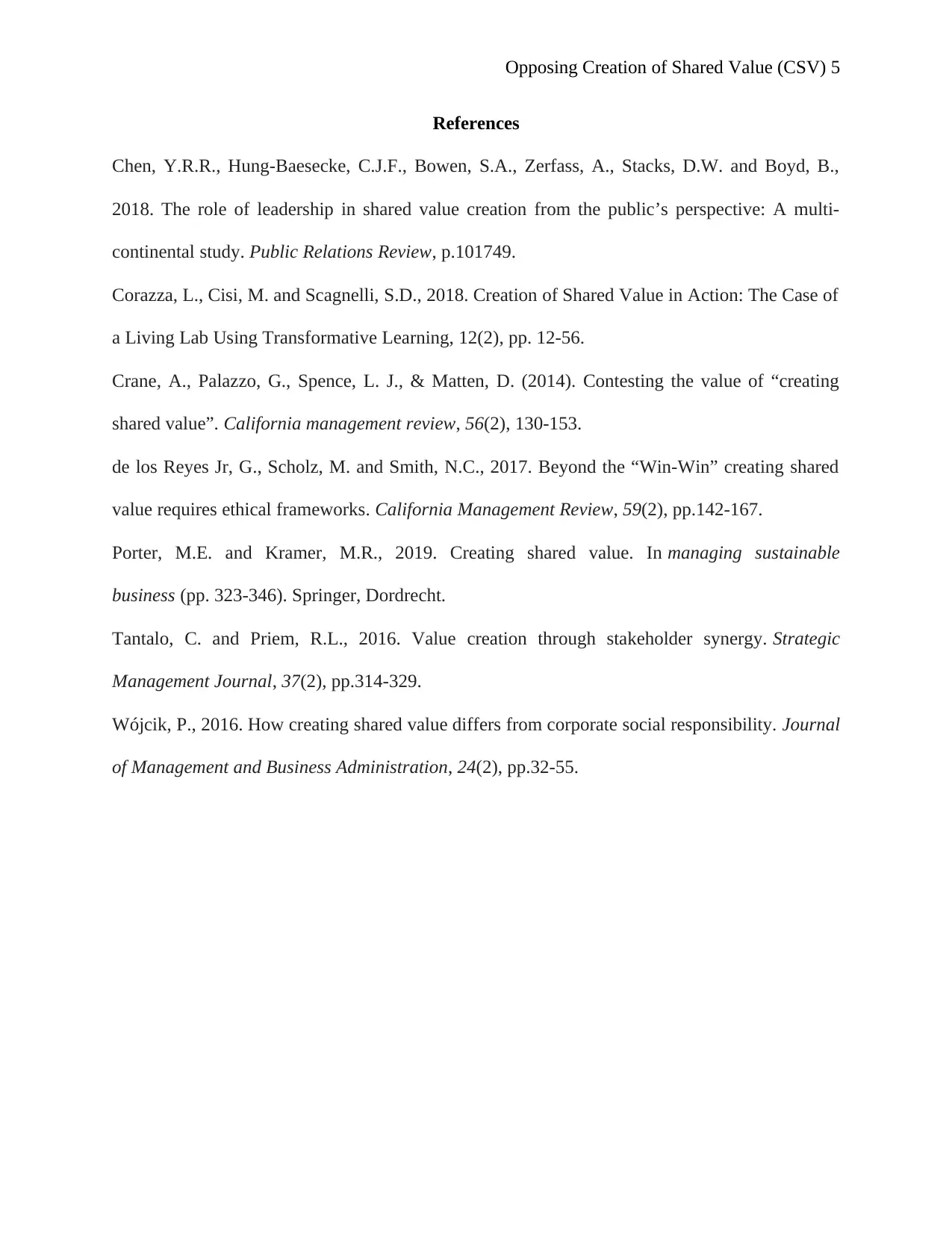
![[object Object]](/_next/static/media/star-bottom.7253800d.svg)